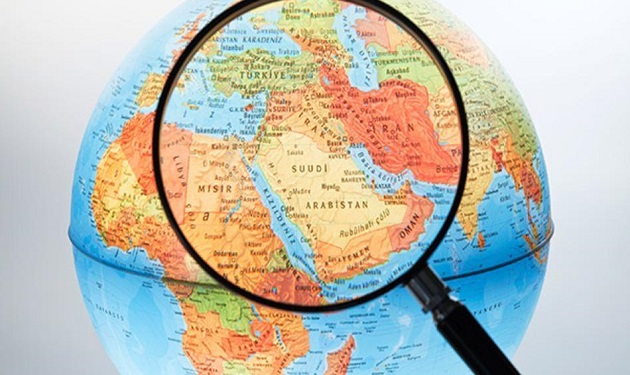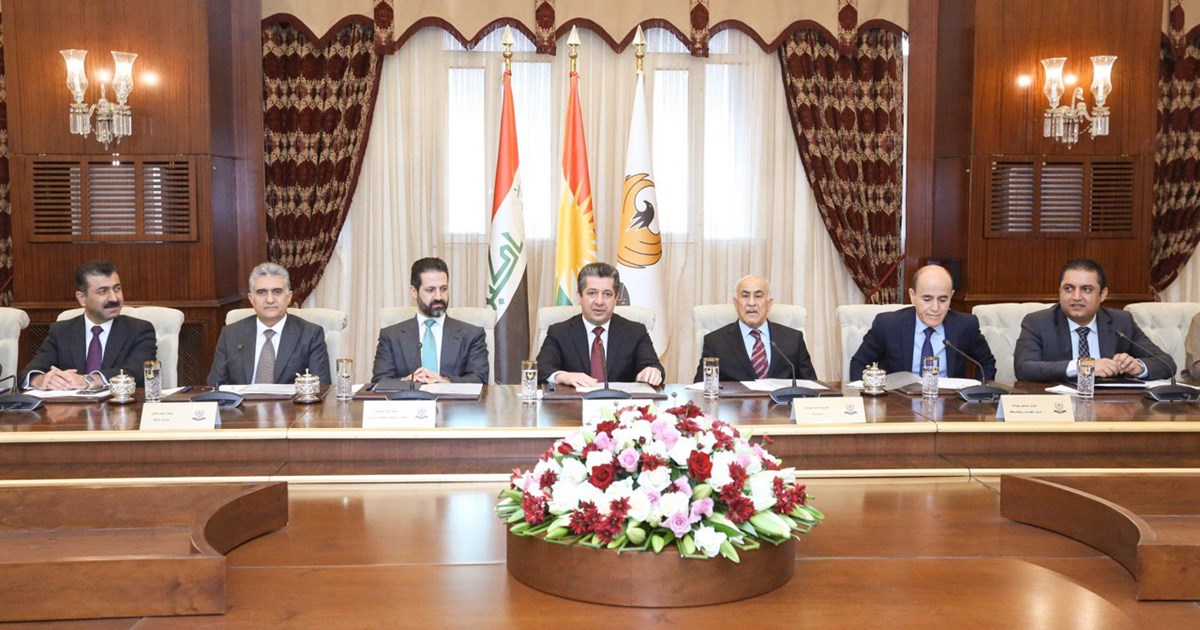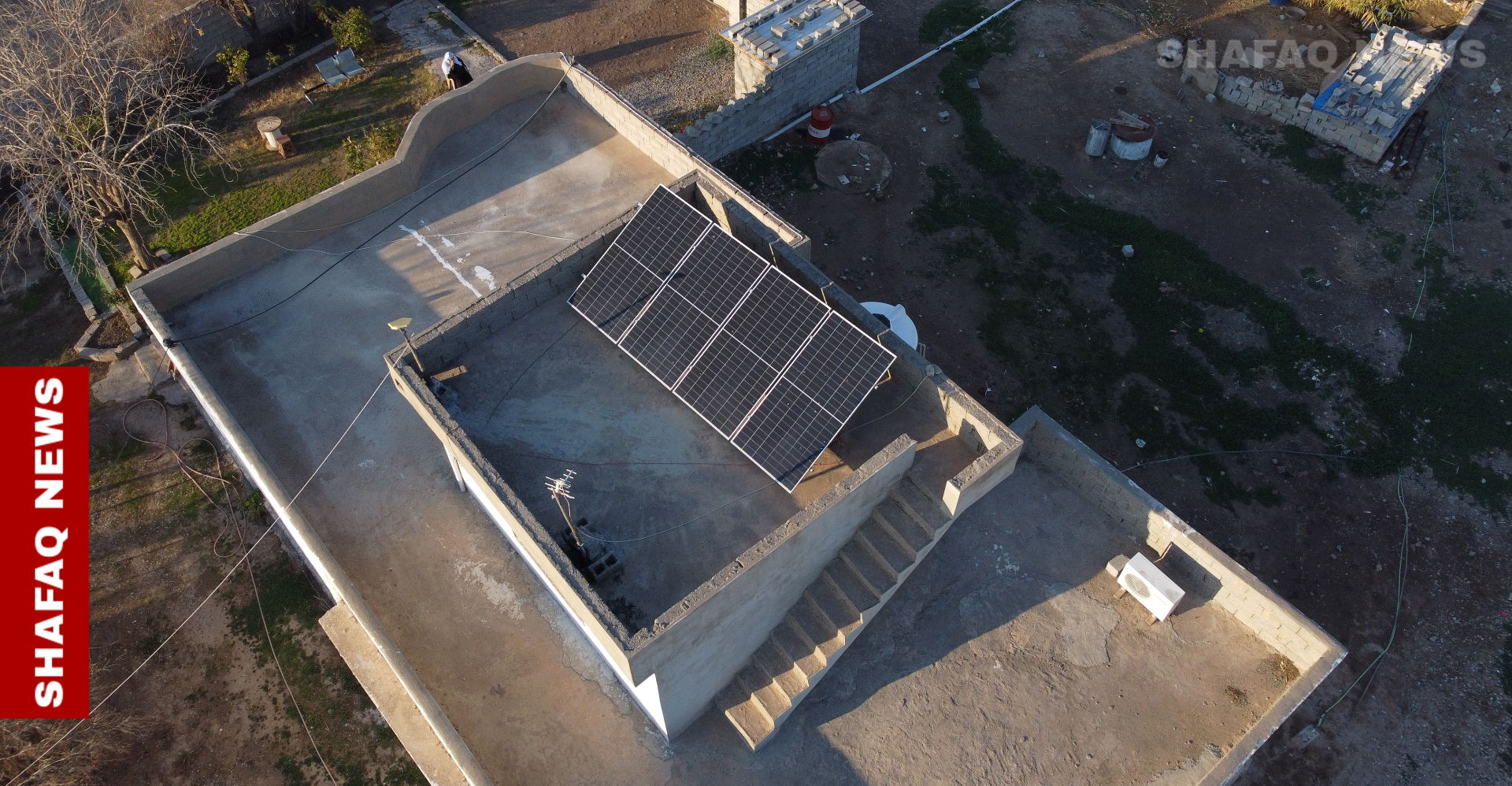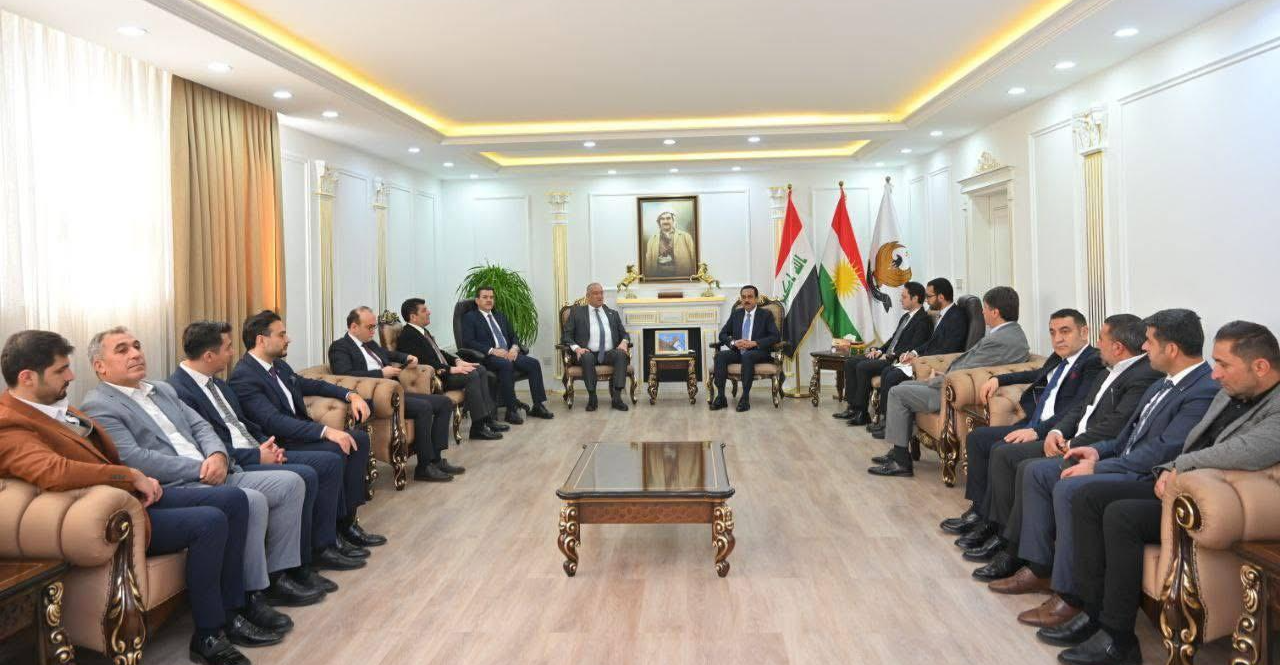Middle East on edge as Iran weighs retaliation, diplomacy intensifies ahead of decisive Thursday

Shafaq News/The Middle East has entered one of its most perilous weeks as speculationmounts over a potentially imminent response from Iran and its allies,particularly Lebanon's Hezbollah. The coming days appear to be a race betweenwar and diplomacy, with the region on high alert.
So far,there are no reassuring signs that the likelihood of a broader militaryconfrontation is diminishing. The only faint glimmer of hope lies in the factthat Iran has not yet retaliated for the killing of Hamas leader Ismail Haniyehon its soil, nor has Hezbollah responded to the assassination of its militarycommander Fuad Shukr, despite more than ten days passing since the incidents.However, this delay does not suggest that Iran or its allies, often referred toas the "Axis of Resistance," have abandoned plans for retribution.
Two SignificantDevelopments
Twosignificant developments in recent days warrant close attention. First, a jointpresidential statement issued by the United States, Qatar, and Egypt—signed byPresident Joe Biden, President Abdel Fattah el-Sisi, and Emir Tamim bin HamadAl Thani—has called for the resumption of ceasefire talks this Thursday. Thisstatement has quickly garnered support from several major Arab and Westerncapitals, primarily out of hope that it might put an end to the devastating warthat has raged for over ten months. Additionally, it is seen as a potentialdiplomatic avenue that could persuade Iran and its allies either to abandontheir plans for retaliation or to scale down their response to avoid triggeringan open conflict.
Observersnote that another development is that to push for these outcomes and avoid abroader confrontation, the US administration has deployed some of its mostprominent diplomats and mediators to the Middle East. Brett McGurk, the USpresidential envoy for the region, is set to begin a regional tour starting inCairo within the next few hours. Following him, CIA Director William Burns willlead the Thursday talks based on the tripartite statement from the three leaders,with US Secretary of State Antony Blinken arriving shortly after that.
According tothe Hebrew-language news outlet "Walla," Blinken has confirmed hisvisit to Israeli Defense Minister Yoav Gallant. Blinken's primary goal is tojoin ongoing efforts to reach an agreement between the Israeli and Palestiniansides and to prevent any further regional escalation.
IsraeliAirstrike Fuels Diplomatic Efforts
According toobservers, the latest massacre committed by the Israeli Air Force at theAl-Tabe'en School in the Gaza Strip, which claimed the lives of over 100 peopleand left dozens injured during dawn prayers, has sparked widespread Arab andinternational condemnation. These reactions are believed to be contributing to reneweddiplomatic efforts, as the negotiation process had appeared to reach a deadlockand uncertain future following the assassination of Ismail Haniyeh in Tehranshortly after he attended the inauguration of Iran's new president, MasoudPezeshkian.
However, theobservers also caution that the challenging mission facing the Americanmediators may ultimately hinge on whether Tehran decides to retaliate againstIsrael for its violation of Iranian sovereignty through the assassination of"its guest," Haniyeh, within the coming hours or days. According toIsrael's Maariv newspaper, American and Israeli officials believe thatHezbollah may carry out its attack within the next 24 hours, with an Iranianresponse likely to follow shortly after that.
When toRetaliate
It remainsunclear whether the diplomatic window that the tripartite statement aimed toopen for Thursday's negotiations can realistically be achieved. According toIsrael's Channel 13, "It is difficult for Israel to determine whether[Hezbollah leader Sayyed Hassan] Nasrallah and the party's leadership havefinalized their plans for an attack, but there is consensus within the securityestablishment that a response will come in the near future."
Sourcesclose to Hezbollah in Beirut indicate that, despite speculation about the timingof retaliation for the crimes committed by Israel in Beirut and Tehran, thegroup has not set an exact date for an attack. These sources stress thatHezbollah has neither decided on a delay nor leaked any potential dates to themedia.
As for Iran,it has provided many indications of its resolve intent to retaliate againstIsrael. In a message of congratulations from the commander of the Iranian QudsForce, Brigadier General Esmail Qaani, to Hamas political leader Yahya Sinwar,Qaani stated, "We consider it our duty to avenge the blood of [IsmailHaniyeh] following this tragic incident that occurred within the territory ofthe Islamic Republic."
Inconjunction, Hezbollah, in a statement released yesterday in response to themassacre during dawn prayers in Gaza, denounced "the talk of a ceasefireand setting new dates for negotiations" as"nothing but lies and deceit that will not fool the Palestinianpeople, their resistance factions, or the supporting fronts " whichare "increasingly determined to resistand spare no effort in order to stop the massacre and prevent the enemy fromachieving its declared and hidden goals."
Fruitful Talks?
The US-basedAxios quoted a source familiar with the negotiations describing the meetingscheduled for Thursday as an "extraordinary" attempt by the Bidenadministration to broker a deal and prevent a regional war. Meanwhile, Israel'sWalla news site noted that Brett McGurk's primary mission in Cairo is toestablish security arrangements on Egypt's border with Gaza, including a jointsystem to prevent arms smuggling and an agreement to reopen the Rafah crossing.These steps are seen as precursors to reaching a broader agreement on the fateof prisoners and a potential ceasefire.
Hamas hasnot yet issued a clear official stance regarding the tripartite call fornegotiations on August 15, neither rejecting nor accepting the proposal.However, sources close to Hamas expressed that the tripartite statement doesnot provide sufficient reassurance. Palestinian sources familiar with the situationindicated that the Hamas leadership is actively working on preparing itsresponse and outlining the key points that will shape its position in theupcoming round of negotiations.
Hezbollah's "BackingFront"
Along withthose efforts, Israel has carried out another targeted assassination, this timein Saida, far from its border with Lebanon, killing senior Hamas leader SamerAl-Hajj in an airstrike. In retaliation, Hezbollah launched an unprecedentedattack on Saturday, deploying a swarm of kamikaze drones to strike the MichveAlon base, a key military site southwest of Safad. The base, located 17.5kilometers from the border, is used for troop assembly and emergency storage.
Israelisources confirmed casualties from Hezbollah's attack, with reports indicatingthat several sensitive locations were hit, though details remain under militarycensorship. Israel's air defense systems managed to intercept only one of theattacking drones.
Channel 12,an Israeli news outlet, described the drone assault as "unusual,"praising Hezbollah's advanced military capabilities and its readiness forfurther confrontation.
Channel 13reported that Israel is preparing for a potentially dramatic week, withHezbollah being poised for retaliation and Iran introducing new layers ofuncertainty every time.
Iran'sAwaited Retaliation
In astatement to IRNA, Iran's mission to the United Nations in New York was askedwhether Tehran might delay its plans to attack Israel until after the Gazaceasefire talks scheduled for Thursday. The mission emphasized that achieving alasting ceasefire in Gaza is a priority for Iran, adding that any agreementaccepted by Hamas would be acceptable to Tehran.
The IranianUN mission also described the assassination of Hamas leader Ismail Haniyeh inTehran as "a violation of national security and sovereignty,"asserting Iran's right to self-defense, independent of the ceasefire efforts inGaza. However, it assured that "any Iranian response would be timed andexecuted in a way that does not undermine the potential ceasefire inGaza."




